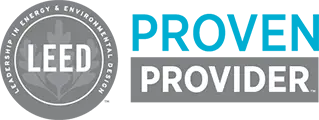Building envelope commissioning is an essential evaluation that construction teams must conduct to guarantee the structure’s durability and efficiency. This process enhances energy efficiency and mitigates potential risks of energy loss, thereby saving on costs. Discover more about building envelope commissioning and its pivotal role in ensuring optimal energy performance.
What Is Building Envelope Commissioning?
A building envelope consists of the physical components of a structure that separate the interior and exterior environments, including doors, walls, windows and roofs. Verifying that these elements are properly installed and well-functioning is called commissioning.
As envelope systems become more advanced and complex, a building envelope commissioning (BECx) is vital to ensure the structure’s quality. The comprehensiveness of the BECx should match the project’s complexity. For instance, a project with a $10 million budget and a few enclosure assemblies needs fewer BECx services than a commercial building with a $200 million budget and hundreds of envelope components.
What Are Its Key Objectives and Benefits?
BECx involves thorough inspection and testing to ensure all envelope components perform well. Key features and benefits include the following.
Helps Reduce Environmental Impact
BECx promotes sustainability by reducing greenhouse gas emissions and minimizing resource usage. This process can contribute to acquiring green building certifications, including Leadership in Energy and Environmental Design (LEED) certification, which acclaims sustainable construction practices. It also supports passive design strategies, such as natural ventilation.
Ensures Mandatory Standards Are Met
A proper BECx ensures compliance with building regulations and code requirements for air leakage, moisture management, thermal insulation and energy efficiency. This expert surveillance also ensures that lawsuits are less likely to occur by providing comprehensive documentation for added proof and protection.
Improves Insurability
Insurance companies consider several factors when determining a structure’s insurability, including the risk of damage and failure, structural integrity and a lower risk profile. When a building envelope is properly assessed, it can minimize the frequency of insurance claims related to mold issues, water damage and other problems.
Protects Investments
Proper design review, site inspection and performance testing help avoid costly mistakes by rectifying issues early on. It also helps protect the investment in a construction project, minimizing repairs and ensuring long-term quality and value.
Boosts Energy Performance
When experts test and report a structure’s energy performance, they assess its quality before owners accept a building. It provides proof and documentation that air, water and light inefficiencies are addressed.
How BECx Helps Ensure an Energy-Efficient Building?
Commissioning the building envelope can support the overall infrastructure’s energy efficiency in many ways.
Decreases Environmental Impact
Prioritizing sustainable materials with low carbon footprint helps reduce the construction’s environmental impact. Proper waste management practices, renewable sources and eco-friendly construction techniques help contribute to an energy-efficient structure.
For instance, Georgetown University and Boston University used ECOPact, Holcim’s low-carbon concrete that offers 30 and 100 lower carbon emissions than usual concrete. The material has the strength of traditional concrete, making it a sustainable, high-performance solution.
Helps Boost Resilience and Adaptability
BECx can suggest using more advanced materials, renewable energy and innovative technologies like energy management systems to make the structure more resilient during disasters. An adaptable structure can withstand calamities that may cause power outages, ensuring uninterrupted operations.
For instance, the process provider can recommend products like Caterpillar’s environmentally friendly solar panels and advanced monitoring systems to provide electricity while minimizing environmental impact during power outages.
Prevents Air Leakage
Checking air sealing quality helps create a strong barrier that keeps heated or cooled air from escaping the building, which increases energy savings between 10% and 20%. BECx conducts a thorough examination to identify gaps, leaks and cracks where air can enter and exit. A properly installed air sealing creates a comfortable indoor environment and reduces the need for constant HVAC adjustments.
The renovation of Middlesex Elementary School required installing a new HVAC system, which was reportedly not performing well because of unidentified enclosure component issues. To identify building envelope problems, FST Technical Services used a smoke-generating device to track airflow and an infrared camera to detect air leakage points.
Identifies Opportunities to Ensure Occupant Comfort
BECx ensures that the building envelope manages noise infiltration, fluctuations, drafts and varying temperatures to create a healthy and comfortable indoor environment for occupants. When people feel safe and at ease inside, it boosts their productivity.
The Allegiant Stadium in Las Vegas can accommodate 65,000 people and prioritizes comfort regardless of the season. It employed an energy-efficient HVAC system with dehumidification features and fan coil units that can provide heating or cooling, depending on the prevailing weather conditions.
Ensures Durability and Longevity
A BECx professional will test, inspect and suggest materials to ensure all components are durable to reduce maintenance-intensive processes. For instance, they can recommend using self-healing concrete to prolong the lifespan of structures to reduce the need for reconstruction. The ARTIS-Aquarium in Amsterdam used Basilisk’s sustainable, self-healing technology to ensure longer service life and less maintenance.
Achieve a Sustainable, Energy-Efficient Building
The building envelope serves as the primary barrier between interior and exterior environments. Ensuring its proper functioning is essential for conserving energy and enhancing sustainability. Aside from energy efficiency, commissioning can also improve the building’s comfort and overall performance, extending its life span.











